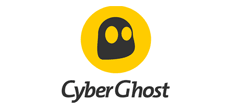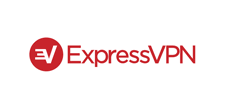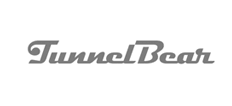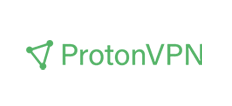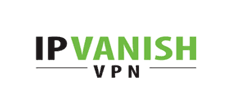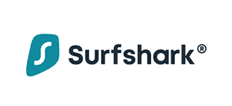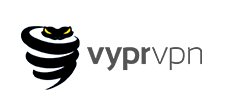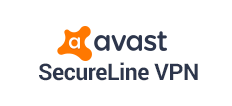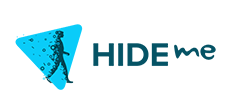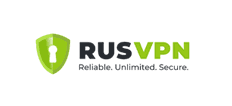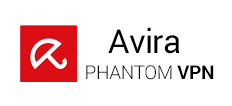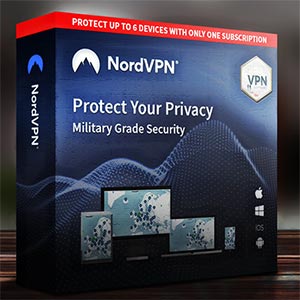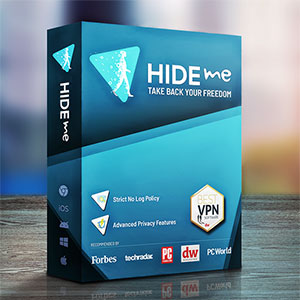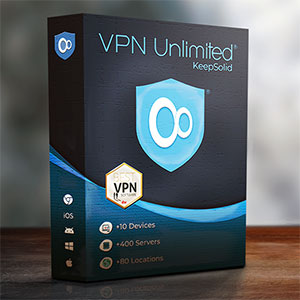Updated: January 2025

by Stephan Kubrik
digitalwelt Lead Columnist for IT Security



RUSVPN has shut down its system and we are not recommending RUSVPN at this moment.
Top VPN Tools | Updated: January 2025
Advertisement: Sponsored ListingsPlease note that the review below is obsolete and does not reflect RUSVPN’s quality as of January 2025
RUS in RUSVPN stands for Reliable, Unlimited and Secure, and the VPN is being developed by the Atrix Group Ltd. in Northern Ireland. The company decided to register the company in the Dominica (The Commonwealth of Dominica): The goal was to prevent western authorities such as European countries and the United States to have jurisdiction over them.
RUSVPN has high expectations when it comes to selecting and renting anonymous servers for the purpose of anonymity. But what does this mean when we compare it with VPN providers?
Many VPN operators nowadays have started to pick from a large pool of servers. Their business model is to simply lease as many anonymous servers worldwide as possible.
For this reason, most large VPN providers ultimately select from the same server portfolio. Yes, it’s true that VPN has become a growing and promising business in the recent years. That’s why the business of creating and renting servers to VPN developers is lucrative than ever before.
If you look at the industry nowadays, the quantity of servers available for one VPN provider is almost the same as for another.
However, RUSVPN has decided to select each server according to its own criteria and has a sophisticated catalogue of requirements according to which servers are fit to be chosen. Accordingly, RUSVPN has a significantly smaller number of servers compared to other VPN providers, namely around 370 servers in more than 37 countries.
Even though the number of 370 servers seem to be awful small compared to other providers, looking at the big picture this is more than enough.
Many of the VPN giants use the number of their servers as a mere advertising feature. The ability to select from thousands of servers is no longer a quality feature these days.
Looking at CyberGhost VPN for example which claims to have more than 6046 servers: It’s not even possible for a user to find the right choice from that many servers. Thus, the CyberGhost VPN makes that choice for you and no longer lets you choose a specific server, but the country instead.
And a couple years ago, the VPN tool Private Internet Access (PIA) had only 20 servers, and yet was considered one of the big market players worldwide.
So, what difference does it really make if you have 6000 or 20 servers? The question is more about whether the speed and the security of the servers are good or not, and if the users can use it for their intended purposes — for example for secure browsing, shopping, torrenting, and streaming such as Netflix, Hulu, Amazon Prime, HBO, Disney Plus and many more.
We have tested RUSVPN with their 370 servers and could not find any hiccups or restrictions in terms of speed, reliability, and the selection of countries. However, if you value quantity over quality, you might want to have a look on VPN tools such as CyberGhost VPN for a much higher price and popularity, but with actually not much difference in quality than RUSVPN.
We have tested RUSVPN
We have all heard of the major VPN developers and corporations such as NordVPN, ExpressVPN, and CyberGhost. All of them have a high market share with a lot of brand recognition. But being a popular VPN comes with a flipside. The more a VPN tool is known, the more attention it gets from government authorities.
This is especially true in the United States and the EU, whom are both known for strict regulations when it comes to internet providers and their duty to reveal user data and information to authorities. In fact, one court order can be enough to seize servers and compromise the whole infrastructure of a VPN manufacturer. In the end, what’s a VPN provider versus the full bandwidth and resources of government giants such as the USA, Germany, UK, Russia, and even Israel, Turkey, China, and Japan. Let’s face it: If these governments with a history of highly sophisticated intelligence want to get access to user data, they might succeed. Until today, only a few government actions against VPN providers came to light, but we might not have heard of cases where users were identified and their anonymity was compromised through successful efforts of government investigators despite using a VPN.
Top VPN Tools | Updated: January 2025
Advertisement: Sponsored ListingsSo, what can you do to be on the safe side? According to popular opinion among hackers, cyber experts, and journalists, there are 3 points to consider getting more security and anonymity when choosing the right VPN tool:
- Choose a VPN provider that is outside the jurisdiction of some of the major government authorities that are known for advanced surveillance organizations and technologies.
- Choose a VPN provider that is not as popular and is not on the radar of authorities.
- Choose VPN provider that is serious, dedicated, and has reached a certain threshold of organizational infrastructure to provide a high-quality VPN software.
Naturally, there are hundreds of VPN providers out there that would fulfill the first two points. But when it comes to an actual showdown, around 90% of those tools and more fail to provide a VPN that can be considered advanced or serious. The vast majority of VPN tools that we have often never even heard of are usually fraudulent; trying to trick users to subscribe either to gain their credit card information, steal data from their computers (trojan horses), or simply let the user subscribe only to provide a poorly created VPN tool with inadequate features and security.
This is one of the reasons why we have chosen to test RUSVPN: A serious and well-designed VPN tool that is worthy of being mentioned and compared alongside the big market players.
RUSVPN has successfully proven to be an advanced tool that comes with all the features popular VPNs have. But at the same time, it’s not very well known. Many cyber hackers would consider a tool like this as hitting the jackpot as they are constantly looking for that one tool that is as good as the famous ones, but operates under the radar; and that tool is RUSVPN. And one very important benefit of these circumstances is that users can profit from a much lower price.
Are you ready for RUSVPN?
RUSVPN Software Support & Overview
5.0
Many third class VPNs out there are always trying to get their grip on you — most of them usually support one operating system, such as only Windows, only Android (by providing an APK file outside Google Play) and similar.
RUSVPN however has established a vast variety of operating systems you can work with, making it a big player as other top contenders like ExpressVPN and similar.
RUSVPN supports the following Operating Systems:
- Windows 10
- macOS
- Linux
Mobile devices:
- Android Phones and Tablets including LG, Samsung, Google Pixel, and more.
- iPhone (iOS)
RUSVPN can be downloaded on both the Apple Appstore and Google Play.
On top of that, only a few major VPN tools successfully provide extensions for several browsers:
- Mozilla Firefox
- Google Chrome
By the way, more than 200,000 users have already installed RUSVPN on their Chrome browsers. Just tap “Add to Chrome” then “Add extension”, Chrome will do the rest and you will see the shield icon on the top right of the browser. Click and do just as you would with the mobile version.
As if that was not enough, RUSVPN goes the extra mile and can even be installed on your network router to provide VPN access if needed:
- Router & OpenVPN
How Secure is RUSVPN? Security Check
4.6
Safety has always been the most important factor for determining how good a VPN is. RUSVPN does not share too much information about their encryption protocol, it just generally says 256-bit encryption is what is used. Not talking about the encryption method is known as “Security Through Obscurity” in the hacker scene and not welcomed. That’s why we sniffed the encrypted data stream and identified the encryption method to be RSA 2048-bit SSL. This can actually be done easily by just identifying the so-called hash, and the location and identification of the encryption key through tools such FindCrypt and Identify Hash.
Fact is that almost all other VPN providers use a different encryption method called AES-256. Maybe that is the reason why RUSVPN is not revealing its encryption method, as it’s not what other VPN providers use. RUSVPN might be concerned that novice users would believe that the only secure encryption out there would be what everybody else uses, namely AES-256.
If so, we don’t necessarily share this concern as the RSA 2048-bit SSL encryption method is as strong as the AES-256 since it uses the same depth in cryptography. The RSA encryption method had been created by Professor Dr. Ron Rivest (Cryptographer and Professor at MIT in United States), Dr. Adi Shamir (Israeli Cryptographer and Mathematician with a PhD in Computer Sciences), and Dr. Leonard Adleman (Computer Scientist from California), thus the name RSA (Sivest-Shamir-Adleman). Several weaknesses of the encryption method have been discussed in the scientific cryptology community, however as of 2025 no successful methods could be presented.
To understand more about the RSA 2048-bit SSL encryption method, we have to understand how long a computer would need to hack the password: A computer would need to try 115,792,089,237,316,195,423,570,985,008,687,907,853,269,984,665,640,564,039,457,584,007,913,129,639,936 (78 digits) combinations of passwords to be able to decode one stream of data. According to research, even the most powerful computers would need 6.4 quadrillion years to crack a code like this.
Long story short, it’s just not possible to even crack one bit of data that has a 2048-bit SSL encryption method. In other words, the only way for authorities to gain access to your data would be to seize your PC on-site.
We gave this security rating only a 4.6 instead of a 5.0, since RUSVPN wasn’t revealing its own encryption method by following an outdated philosophy (Security through Obscurity), and we had to find out ourselves.
RUSVPN and Government Authority Accessibility
5.0
In terms of privacy, remember the fact that RUSVPN is based in Dominica? It’s not a coincidence since this strange country is out of the Five Eyes, Nine-Eyes, 14-Eye country surveillance lists.
What that means: Five Eyes, Nine-Eyes, 14-Eye are international surveillance alliances of the:
- United States
- Canada
- Germany
- Switzerland
- United Kingdom
- Ireland
- New Zealand
- Denmark
- France
- Netherlands
- Norway
- Belgium
- Italy
- Sweden
and - Spain
These alliances work closely with NSA and GCHQ, and other intelligence agencies. Their goal is to be able to conduct large-scale espionage and data collection from devices that are not easily accessible and use methods of encryption such as VPNs. Obviously, these alliances are not only exploiting but also exert influence on and are responsible for state laws concerning data security. These efforts allow authorities to access encrypted data, and compromise communication organizations such as VPN providers, to reveal their data streams and user data.
Where there is an action, there is a counteraction. That’s why many VPN providers decided to run their companies outside the jurisdiction of those countries and alliances to be able to operate without those restrictive government and law regulations.
This may be the most difficult task for VPN providers nowadays: These countries listed above are known for their best IT infrastructure, education, and therefore best programmers and state-of-the-art technologies in the world. Using a VPN tool that is within the jurisdiction of these countries also mean that you are most likely to get a high-quality VPN tool. Good examples for one of the best VPN technologies is Vypr VPN and Proton VPN (both ‘Made in Switzerland’), and Avast SecureLine VPN (Made in Germany).
On the other hand, these VPN providers run their businesses in countries that participate in the Five Eyes, Nine-Eyes, 14-Eye alliances.
And this is where RUSVPN scores. Its legal jurisdiction is in the Dominica, and the software was developed in Norway. It’s the only VPN software so far we have seen that would put this much emphasis on quality by letting it be developed in Norway for better quality purposes, but register their company in the Dominica to be outside the jurisdiction of these allied countries. That’s why we think RUSVPN is the best choice when it comes to being safe from any government intervention.
RUSVPN Server Information
4.6
RUSVPN has high expectations when it comes to selecting and renting anonymous servers for the purpose of anonymity. But what does this mean when we compare it with VPN providers?
Many VPN operators nowadays have started to pick from a large pool of servers. Their business model is to simply lease as many anonymous servers worldwide as possible.
For this reason, most large VPN providers ultimately select from the same server portfolio. Yes, it’s true that VPN has become a growing and promising business in the recent years. That’s why the business of creating and renting servers to VPN developers is lucrative than ever before.
If you look at the industry nowadays, the quantity of servers available for one VPN provider is almost the same as for another.
However, RUSVPN has decided to select each server according to its own criteria and has a sophisticated catalogue of requirements according to which servers are fit to be chosen. Accordingly, RUSVPN has a significantly smaller number of servers compared to other VPN providers, namely around 370 servers in more than 37 countries.
Even though the number of 370 servers seem to be awful small compared to other providers, looking at the big picture this is more than enough.
Many of the VPN giants use the number of their servers as a mere advertising feature. The ability to select from thousands of servers is no longer a quality feature these days.
Looking at CyberGhost VPN for example which claims to have more than 6046 servers: It’s not even possible for a user to find the right choice from that many servers. Thus, the CyberGhost VPN makes that choice for you and no longer lets you choose a specific server, but the country instead.
And a couple years ago, the VPN tool Private Internet Access (PIA) had only 20 servers, and yet was considered one of the big market players worldwide.
So, what difference does it really make if you have 6000 or 20 servers? The question is more about whether the speed and the security of the servers are good or not, and if the users can use it for their intended purposes — for example for secure browsing, shopping, torrenting, and streaming such as Netflix, Hulu, Amazon Prime, HBO, Disney Plus and many more.
We have tested RUSVPN with their 370 servers and could not find any hiccups or restrictions in terms of speed, reliability, and the selection of countries. However, if you value quantity over quality, you might want to have a look on VPN tools such as CyberGhost VPN for a much higher price and popularity, but with actually not much difference in quality than RUSVPN.
How Fast and Reliable is RUSVPN?
4.8
For the speed test, our tested original internet connection speed was around 100 Mbps for both downloading and uploading. After testing with the chosen locations in different countries including USA, Germany, Russia, China, and Mexico, the corresponding speeds were impressive at nearly the same levels.
We have also tested RUSVPN with a 300 Mbps connection but could not achieve that speed. That limits RUSVPN’s speed to about 100 Mbps which however should be more than enough considering most households have speeds between 25 and 100 Mbps anyways.
Streaming with RUSVPN: Netflux, Hulu, and HBO
4.7
The ability to unblock streaming media channels is a reason that makes VPN services so popular. Good news for “Netflix and chill” devotees as RUSVPN works well with the most popular streaming services and many more.
Other popular channels like Amazon Prime, Netflix, Hulu, HBO GO or BBC iPlayer also worked without issues during our testing, and along with them are high speeds and a stable connection, you can hardly find any lags or restrictions. Another form of media prone to regional blocking are sports broadcasts, and we were also able to access them through RUSVPN.
Unique Features of RUSVPN
An interesting benefit of using RUSVPN is for buying products that have prices that vary by region. Flight tickets, hotels, and car rentals are typically products that change prices in different regions because the service providers always scan your IP’s location before proposing the corresponding prices. By changing your IP address to some developing or third-world countries, you can bypass this sophisticated action and find much more reasonable prices. We were able to to use the typical booking portals such as Booking.com, Expedia.com, TripAdvisor, Hotels.com, Priceline.com from RUSVPN servers.
RUSVPN also protects your traffic when torrenting and works like a charm. When you torrent, you take advantage of a large number of users across a network to divide and share larger files to optimize downloading speed, but your IP address is shared with others at the same time, making your data vulnerable. As such, a VPN is needed to shield your connection if you don’t want to reveal your real identity to other torrenters or torrent-spoofers.
How Much is RUSVPN?
4.9
RUSVPN is available for free and provides free servers in 5 countries. However, their connection speed is limited. Only the paid subscription version should provide the most consistent experience.
RUSVPN costs $1.99/month which is very competitive and considered a very affordable price. Along with it comes a full 30-day money-back guarantee to provide more trust and security.
Is RUSVPN Good? Conclusion & Closing Thoughts
RUSVPN provides a proper VPN service at a reasonable price, from just $1.99/month. It meets all the common requirements for a VPN like giving access to blocked websites, allowing streaming or offering better prices for tickets based on region. RUSVPN has strongly proven their ability to keep its client’s data in one piece.
As one of the VPN providers with less market share it is also a VPN tool that works under the radar of government authorities, but at the same time provides the same quality as its big rivals. RUSVPN is an insider tip.
by Stephan Kubrik
Stephan Kubrik is a Computer Scientist and expert on VPNs and computer viruses. Stephan has been researching for the Fraunhofer Society and has been developing software for the autonomous discovery of computer viruses and trojans using artificial intelligence.
He was previously a Research Associate at the Technical University of Cologne, studied Computer Engineering, and regularly publishes in IT magazines and journals, including the PC Magazine and digitalwelt.



digitalwelt Lead Columnist for IT Security







